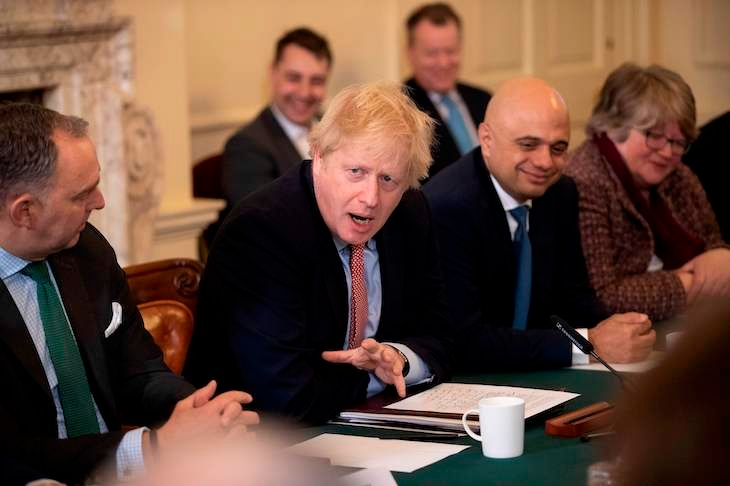Boris Johnson’s first week back in Parliament did not lead to the type of fireworks many had been expecting after the Prime Minister’s decisive election victory. Over Christmas, there was chatter that Johnson was building up to a mass restructuring of Whitehall, a cull of the Cabinet and a reorganisation of the civil service. This was expected to take place in what had been dubbed the ‘Valentine’s Day massacre’ by government insiders.
Next month, changes are still expected – with a reshuffle coming and a reorganisation of departments. However, it will likely not meet initial expectations in terms of scope. Over the weekend, Boris Johnson met at Chequers with key members of his team and government officials to discuss the changes. In recent weeks, there has been a move away from culling departments en masse. Instead only small changes are expected when it comes to the Whitehall reconfiguration.
The reason? The key theme driving all of the mooted changes is efficiency – figures in No. 10 are mindful that while they have won four more years in office, four years isn’t actually that much time to bring about visible results. Johnson’s senior aide Dominic Cummings has long been sceptical of the ability of the current machinery of government to bring about change. No 10 aides are already looking at to how to win another five years in power and in order to achieve that, they need to have something to show their new voters who lent them their support in 2019. Everything being discussed comes back to this mission.
However, there is a view now that mass Whitehall reorganisation would take up bandwidth needed for Brexit and other reforms. Central to the reorganisation are the so-called ‘red wall’ Tory MPs. The new MPs who are receiving the most attention and support are those who won in the Midlands and North – in areas that have traditionally voted Labour. Sajid Javid told MPs last week at the meeting of the 1922 committee that the spending taps were open. The view among MPs is that they are only really on if you hold a seat in the red wall. Of the departmental ideas mooted, a new department for infrastructure and a department for the North have been touted. Whether or not one is created, the push and focus is how to direct funds to these areas for infrastructure and its delivery. Javid in part secured his position as Chancellor for some time to come by giving Johnson Christmas reading in the shape of an 18-page report on his ideas for levelling up the country.
One thing that is clear is that some ministers will be shown the door next month. Johnson and his team want a change in how ministers approach their jobs. Given there is no risk of another election for another four or five years, Team Johnson wish to use its newly won power to focus on policy and departmental changes, rather than feeding the media beast. In the final meeting of special advisers before Christmas, Johnson’s senior aide Dominic Cummings offered attendees advice both for their careers and their bosses’ – suggesting that the way to get on is to focus on departmental progress rather than media hits. Each secretary of state is to focus on reforming their department rather than the media – and ministers have already been banned from appearing on a number of shows.
With a premium on a detailed grasp of one’s brief, the No. 10 operation is less reliant on who they view as best to send on the airwaves. Expect fewer ministers around the Cabinet table and the departure of the biggest brown-nosers. While some politicians enjoy endless flattery, Johnson likes meetings to be as brief as possible. Those ministers with a tendency to speak up at the end of conference calls or around the Cabinet table to tell the Prime Minister what a good job he is doing have been duly noted.
Cabinet ministers who look assured of staying put – if not promoted – include Michael Gove, Dominic Raab and Rishi Sunak. Northern Ireland Secretary Julian Smith had been seen as destined for the chop, owing to his tendency for Cabinet outbursts ahead of the election (over issues such as prorogation). However, Smith’s work helping restore power-sharing to Stormont means that he has a much better chance of being kept on. As for those facing the chop, usually Cabinet speculation of who is facing the axe focuses on which ministers have made the least impact, with media a factor. However, No. 10’s ministerial priorities mean that this metric isn’t the best guide. Instead a better indication of who could be pushed out in a month’s time is which cabinet ministers are pushing their agenda in the media without No. 10’s permission.







Comments